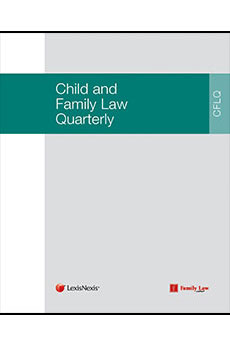Helen Reece, Reader in Law, Department of Law, London School of Economics
In
Re P (Adoption: Unmarried Couple) [2008] UKHL 38, [2008] 2 FLR 1084 the House of Lords held that a bar on adoption by unmarried couples is unlawful discrimination contrary to Article 14 of the European Convention for the Protection of Human Rights and Fundamental Freedoms 1950 (ECHR). In
R v Secretary of State for Health and Kent County Council, ex p B [1999] 1 FLR 656, the High Court found that a bar on fostering by convicted sex offenders is lawful. In what follows, I argue that the reasoning in Re P applies mutatis mutandis to individuals such as those in ex p B prevented from adopting or fostering under vetting and barring schemes, the most prominent being the scheme introduced by the Safeguarding Vulnerable Groups Act 2006. I first consider various ways in which such individuals could bring themselves within the grounds protected by Article 14, and I argue that ‘sex offender' itself could be a protected status, because sex offenders have the personal characteristic of ‘risk'. I next analyse whether the bar on adoption and fostering, and vetting and barring schemes in their entirety, would fall within the ambit of a substantive Article of the ECHR, and I conclude that the whole Safeguarding Vulnerable Groups Act scheme would come within the scope of Article 8. Finally, I consider whether the bar on adoption and fostering by risky individuals is objectively justified, and I conclude that the argument that convinced the House of Lords in
Re P applies equally in this context: it is impermissible to turn a reasonable generalisation into an irrebuttable presumption for individual cases, given the duty to treat the best interests of the child as paramount.
The full version of this article appeared in 2010 issue 4 of Child and Family Law Quarterly.Jordan Publishing are pleased to make this article available for download, free of charge, as a service to our readers.
To download the article, click here.Jordan Publishing reserve all rights to this article. Reproduction, transmission or reduction by any process in whole or in part of this publication is expressly prohibited without prior consent.For details on how you can subscribe to CFLQ or for any offers, please contact a member of our sales team: Tel 0117 918 1555, or email: sales.manager@jordanpublishing.co.uk





